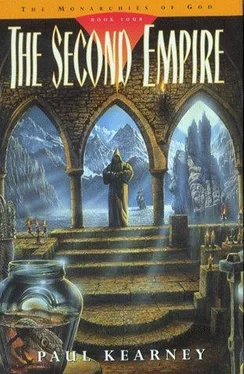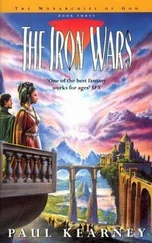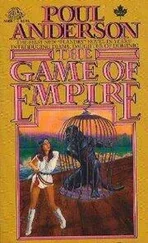Paul Kearney - The Second Empire
Здесь есть возможность читать онлайн «Paul Kearney - The Second Empire» весь текст электронной книги совершенно бесплатно (целиком полную версию без сокращений). В некоторых случаях можно слушать аудио, скачать через торрент в формате fb2 и присутствует краткое содержание. Жанр: Фэнтези, на английском языке. Описание произведения, (предисловие) а так же отзывы посетителей доступны на портале библиотеки ЛибКат.
- Название:The Second Empire
- Автор:
- Жанр:
- Год:неизвестен
- ISBN:нет данных
- Рейтинг книги:5 / 5. Голосов: 1
-
Избранное:Добавить в избранное
- Отзывы:
-
Ваша оценка:
- 100
- 1
- 2
- 3
- 4
- 5
The Second Empire: краткое содержание, описание и аннотация
Предлагаем к чтению аннотацию, описание, краткое содержание или предисловие (зависит от того, что написал сам автор книги «The Second Empire»). Если вы не нашли необходимую информацию о книге — напишите в комментариях, мы постараемся отыскать её.
The Second Empire — читать онлайн бесплатно полную книгу (весь текст) целиком
Ниже представлен текст книги, разбитый по страницам. Система сохранения места последней прочитанной страницы, позволяет с удобством читать онлайн бесплатно книгу «The Second Empire», без необходимости каждый раз заново искать на чём Вы остановились. Поставьте закладку, и сможете в любой момент перейти на страницу, на которой закончили чтение.
Интервал:
Закладка:
Paul Kearney
The Second Empire
WHAT WENT BEFORE…
Five centuries ago two great religious faiths arose which were to dominate the entire known world. They were founded on the teachings of two men: in the west, St. Ramusio; in the east, the Prophet Ahrimuz.
The Ramusian faith arose at the same time that the great continent-wide empire of the Fimbrians was coming apart. The greatest soldiers the world had ever seen, the Fimbrians had become embroiled in a vicious civil war which enabled their conquered provinces to break away one by one and become the Seven Kingdoms. Fimbria dwindled to a shadow of her former self, her troops still formidable, but her concerns confined exclusively to the problems within the borders of the homeland. And the Seven Kingdoms went from strength to strength-until, that is, the first hosts of the Merduks began pouring over the Jafrar mountains, quickly reducing their numbers to five.
Thus began the great struggle between the Ramusians of the west and the Merduks of the east, a sporadic and brutal war carried on for generations which, by the sixth century of Ramusian reckoning, was finally reaching its climax.
For Aekir, greatest city of the west and seat of the Ramusian Pontiff, finally fell to the eastern invaders in the year 551. Out of its sack escaped two men whose survival was to have the greatest possible consequences for future history. One of them was the Pontiff himself, Macrobius-thought dead by the rest of the Ramusian Kingdoms and by the remainder of the Church hierarchy. The other was Corfe Cear-Inaf, a lowly ensign of cavalry, who deserted his post in despair after the loss of his wife in the tumult of the city’s fall.
But the Ramusian Church had already elected another Pontiff, Himerius, who was set upon purging the Five Kingdoms of any remnant of the Dweomer-Folk, the practitioners of magic. The purge caused Hebrion’s young king, Abeleyn, to accept a desperate expedition into the uttermost west to seek the fabled Western Continent, an expedition led by his ruthlessly ambitious cousin, Lord Murad of Galiapeno. Murad blackmailed a master mariner, one Richard Hawkwood, into leading the voyage, and as passengers and would-be colonists they took along some of the refugee Dweomer-Folk of Hebrion, including one Bardolin of Carreirida. But when they finally reached the fabled west, they found that a colony of lycanthropes and mages had already existed there for centuries under the aegis of an immortal arch-mage, Aruan. Their exploratory party was wiped out, with only Murad, Hawkwood and Bardolin surviving.
Back in Normannia, the Ramusian Church was split down the middle as three of the Five Kingdoms recognised Macrobius as the true Pontiff, while the rest preferred the newly elected Himerius. Religious war erupted as the three so-called Heretic Kings-Abeleyn of Hebrion, Mark of Astarac and Lofantyr of Torunna, fought to keep their thrones. They all succeeded, but Abeleyn had the hardest battle to fight. He had to storm his own capital, Abrusio, by land and sea, half-destroying it in the process. And in the moment of his final victory, he was smashed down by a stray shell, which blasted what remained of his body into a deep coma.
As Abeleyn lay senseless, administered to by his faithful wizard Golophin, a power struggle began. His mistress Jemilla strove to set up a Regency to govern the kingdom, which would recognise the right of her unborn child-nominally, the King’s-to succeed to the throne. Golophin and Isolla, Abeleyn’s Astaran fiancee, worked in their turn to curb Jemilla’s ambitions. After the weary Golophin’s sorcerous powers were restored by the unexpected intervention of Aruan from the West, Abeleyn was roused from his coma, his missing legs replaced by magical limbs of wood.
All across the continent, the Monarchies of God were in a state of violent flux. In Almark, the dying King Haukir bequeathed his kingdom to the Himerian Church, transforming it overnight into a great temporal power. The man at its head, Himerius, was in fact a puppet of the Western sorcerer Aruan, and after a strange and agonising initiation, he had become a lycanthrope like his master.
And in Charibon two of his humbler fellow-clerics, Albrec and Avila, stumbled upon an ancient document, a biography of St Ramusio which stated that he was one and the same as the Merduk Prophet Ahrimuz. The two monks, guilty of heresy, fled Charibon, but not before a macabre encounter with the chief librarian of the monastery city, who also turned out to be a werewolf. They ran into the teeth of a midwinter blizzard, and would have died in the snow had they not been rescued by a passing Fimbrian army, which was on its way east to support the Torunnans in their great battles against the Merduks. The monks finally made their weary way to Torunn itself, there to confront Macrobius with the momentous knowledge they carried.
Further east, the great Torunnan fortress of Ormann Dyke became the focuss of the Merduk assaults, and there Corfe distinguished himself in its defence. He was promoted and, catching the eye of Torunna’s Queen Dowager, Odelia, was given the mission of bringing to heel the rebellious nobles in the south of the kingdom. This he undertook with a motley, ill-equipped band of ex-galley slaves which was all the Torunnan King would allow him. Plagued by the memory of his lost wife, he was, mercifully, unaware that she had in fact survived Aekir’s fall and was now the favourite concubine of the Sultan Aurungzeb himself-and bearing his child.
The Merduks finally abandoned their costly frontal assaults and outflanked Ormann Dyke by sea, forcing the fortress’s evacuation. The retreating garrison joined up with the Fimbrians who had arrived, too late, to reinforce them, and the combined force would have been destroyed at the North More, had not Corfe disobeyed orders and taken his own command north to break them out of their encirclement. As it was, half of the two armies were lost, and Corfe, thanks to the intrigues of the Torunnan Queen-Mother, became General of the remainder. He and Odelia became lovers, which added to the whispering campaign against him at court, and further prejudiced young King Lofantyr against him.
Lofantyr led the entire remaining Torunnan army into the field in a last-ditch attempt to halt the advancing Merduks, and in a titanic battle north of his capital he lost his wife. Corfe wrenched a bloody victory of sorts out of the debacle, and once more brought the army home-this time to be made Commander-in-Chief.
The year 551 had ended, and another chapter in Normannia’s turbulent history was about to be written. Over the horizon, Richard Hawkwood’s battered ship was making its tortured voyage home at last, bearing news of the terrible New World that was stirring in the West.
PROLOGUE
The makeshift tiller bucked under their hands, bruising ribs. Hawkwood gripped it tighter to his sore chest along with the others, teeth set, his mind a flare of foul curses-a helpless fury which damned the wind, the ship, the sea itself, and the vast, uncaring world upon which they raced in mad career.
The wind backed a point-he could feel it spike into his right ear, heavy with chill rain. He unclenched his jaws long enough to shriek forward over the lashing gale.
“Brace the yards-it’s backing round. Brace around that mainyard, God rot you!”
Other men appeared on the wave-swept deck, tottering out of their hiding places and staggering across the plunging waist of the carrack. They were in rags, some looking as though they might once have been soldiers, with the wreck of military uniforms still flapping around their torsos. They were clumsy and torpid in the bitter soaking spindrift, and looked as though they belonged in a sick-bed rather than on the deck of a storm-tossed ship.
Читать дальшеИнтервал:
Закладка:
Похожие книги на «The Second Empire»
Представляем Вашему вниманию похожие книги на «The Second Empire» списком для выбора. Мы отобрали схожую по названию и смыслу литературу в надежде предоставить читателям больше вариантов отыскать новые, интересные, ещё непрочитанные произведения.
Обсуждение, отзывы о книге «The Second Empire» и просто собственные мнения читателей. Оставьте ваши комментарии, напишите, что Вы думаете о произведении, его смысле или главных героях. Укажите что конкретно понравилось, а что нет, и почему Вы так считаете.












